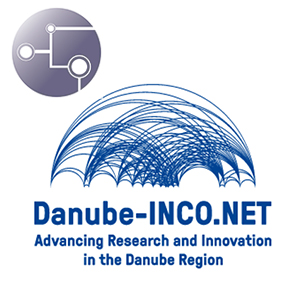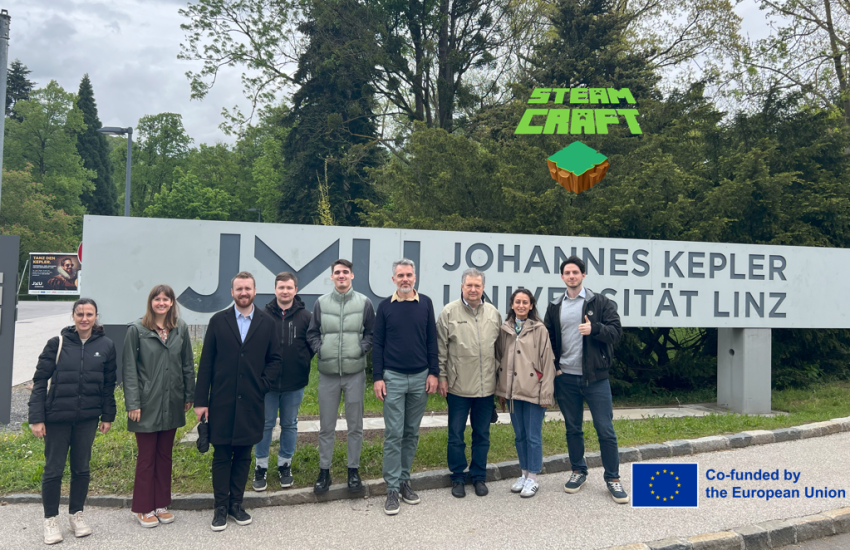Enhancing synergies in research and innovation programmes in the Danube Region
The first Stakeholders Workshop under the title Enhancing synergies in research and innovation programmes in the region will take place in Budapest, Hungary on 8-9 June 2015, co-organised by the project Danube Region INCO.NET funded by the European Commission under FP7, and the Regional Centre for Information and Scientific Development.
The event aims to provide a forum for selected stakeholders to promote the extension of existing initiatives, support the identification and the roadmap to the implementation of synergies (primarily synergies between RI & higher educational programmes and other activities supporting researchers & innovators in the Danube Region with those specifically active in and for the Western Balkans), enhance strategic decisions and collect further information for the update of the report. A further objective of the meeting will be to disseminate the results of the Mapping of relevant stakeholders describing activities, positions, and good practices including recommendations for synergies carried out by the Danube-INCO.NET consortium and to inform about other key project results.
The Western Balkan Countries Steering Platform (WBC SP) meeting planned to be held on 8-9 June 2015 gathering key representatives of national ministries and other governmental bodies responsible for higher education and research from the region. Therefore, it is an excellent opportunity to organize back-to-back a stakeholder event to discuss and disseminate the results of the Mapping of relevant stakeholders report. In addition to the Steering Platform members, the attendance of ca. 15 representatives is foreseen, mainly programme owners and funding bodies relating to R&I and education acting either at national, regional or transnational levels.
As it is envisaged to focus on the synergies between the specific geographic foci and the overlaps between the Danube Region and the Western Balkans R&I stakeholders and activities (as well as some other geographic areas), RCC, WISE and other WBC stakeholders will specifically be invited to discuss their input and synergies to the EUSDR foci.
Furthermore, taking into account the particular recommendations of D2.9, the expansion of joint programmes (joint degree, mobility programmes, summer schools, etc.) as well as a strengthened dialogue along the triple helix of academia – industry – government is expected to be in the centre of the discussions.
Registration
Please return the filled in registration form to Ms. Ildikó Dorogi at ildiko.dorogi@rcisd.eu and CC it to danube-inco@rcisd.eu. Registration deadline is 12 May 2015.
Venue
The venue of the event will be the Institute of Foreign Affairs and Trade (Bérc street 13-15, 1016 Budapest).
Organizer
Regional Centre for Information and Scientific Development (RCISD)
Contact person for any questions regarding the event:
Ms. Ildikó Dorogi: danube-inco@rcisd.eu; ildiko.dorogi@rcisd.eu
Ms. Virág Zsár: virag.zsar@rcisd.eu
Preliminary Agenda
| 09:30 - 10:00 | Arrival and welcome coffee |
| 10:00 - 10:05 | Welcome by the Director of Institute of Foreign Affairs and Trade (IFAT) |
| 10:05 - 10:10 | Welcome and objectives of the event by Béla Kardon (RCISD) |
| 10:10 - 10:25 | Overview of activities and achievements of the Danube-INCO.NET by Elke Dall (ZSI) |
| 10:25-10:40 | Presentation of the report including synergies and recommendations with a special emphasis on R&I and educational activities, possible joint programmes and dialogue within and beyond the triple helix by Virág Zsár (RCISD) |
| 10:40-11:30 | Presentations by selected stakeholders with a special emphasis on the following aspects: - characteristics of the initiative/organization - coordination at various levels (regional, national, international) - combining different funding sources and instruments - influence of the EUSDR - joint activities envisaged - dialogue within the triple helix (1) Update on the Research and Innovation dimension of the SEE 2020 Strategy by Mladen Dragasevic, Representative of Regional Cooperation Council (2) Western Balkans Regional R&D Strategy for Innovation and Priorities for the Western Balkans by Kristina Ferara Blaskovic, Representative of WISE (3) Bringing intellectual power together: the cooperation of universities in the Danube region by Michal Lostak, Representative of Danube Rectors Conference (4) Promotion of Science and Transfer of Technology by the Central European Initiative: Pilot Activities of the CEI-PRAISE Programme and beyond by Giorgio Rosso Cicogna, Representative of the Central European Initiative (CEI Praise) (5) CEEPUS as an Example of Decentralized Organization by Elisabeth Sorantin Representative of CEEPUS 5x10 min. presentations |
| 11:30-11:45 | Coffee Break & Networking |
| 11:45-12:25 | Presentations by selected stakeholders with a special emphasis on the same aspects as above: (6) Wusterova Karla, Representative of Visegrad Fund (7) Project Danube Universities for sustainable energy competence by Csilla Csapó, Representative of Danube Universities (8) Marie Prchalova, Representative of UNESCO (9) Cooperation Among Member States of the Organization of the Black Sea Economic Cooperation (BSEC) in the Field of Science and Technology by Bratislav Dordevic, Representative of the Black Sea Economic Cooperation (BSEC) 4x10 min. presentations |
| 12:25-13:00 | Conversation in knowledge cafés around the following topics - Which factors and tools can support the dialogue among the triple helix? How could this be reinforced in the region? What could your organisation do with this regard? - What kind of tools could support the harmonisation of various programmes of regional stakeholders? What could your organisation do with this regard? - Which means would be needed to broaden the scope of current cooperation or to run joint programmes among regional stakeholders? What could your organisation do with this regard? |
| 13:00-13:20 | Follow-up of knowledge cafés |
| 13:20-13:30 | Conclusions, future steps |
| 13:30-14:30 | Working Lunch |



